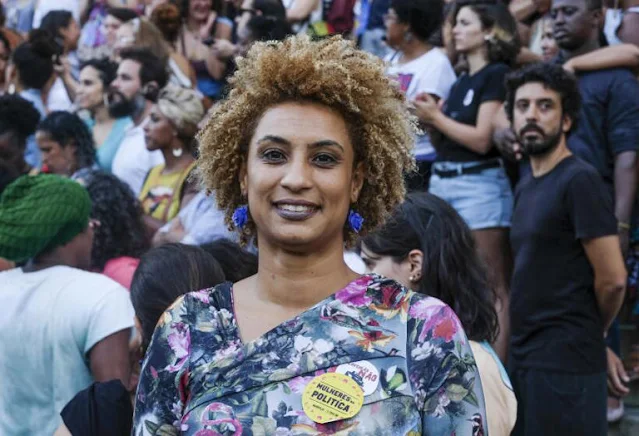Two days after the tragic assassination of Rio de Janeiro City Councilwoman Marielle Franco in 2018, her spouse met with Rivaldo Barbosa, the head of the state's civil police, seeking assurance of justice. However, recent revelations have cast doubt on Barbosa's integrity.
On March 24, more than six years later, federal authorities arrested Barbosa on charges alleging his involvement in Franco's murder and his acceptance of bribes to obstruct the ensuing investigation.
Mônica Benício, Franco's widow, expressed profound distress upon Barbosa's arrest, revealing her encounter with him shortly after her wife's tragic demise.
Benício tearfully recounted that Barbosa, who appeared to have inside knowledge of the events leading to Franco's assassination, may have been complicit in its orchestration.
The revelations contained within a nearly 500-page federal police report provide insight into the extensive reach of organized crime within Rio's institutions, exposing systemic corruption within a city where powerful militias allegedly wield considerable influence over law enforcement.
The untimely death of Marielle Franco, attributed to her advocacy against militia expansion and her tireless fight for the disadvantaged, underscores the dire consequences of allowing organized crime to exert unchecked power in Rio de Janeiro.
The investigation implicates former police officer Ronnie Lessa, who purportedly confessed to being hired by two politician brothers to carry out Franco's murder.
Lessa alleged that Barbosa had sanctioned the assassination.
Police believe Franco's killing was motivated by her perceived obstruction to the interests of militias.
Barbosa's legal representatives vehemently deny these accusations, asserting his innocence and challenging the credibility of testimonies provided by convicted criminals.
Despite assuming his role as police chief with a resolute pledge to combat corruption, Franco's assassination occurred the very next day, raising suspicions about the timing of events.
The arrest of Barbosa and the subsequent revelations underscore the depth of corruption within Rio's law enforcement apparatus.
Allegations of money laundering and illicit financial gains have further tarnished Barbosa's reputation.
While the investigation continues, societal outrage and federal intervention have been identified as crucial drivers for progress, indicating a systemic failure in Rio's ability to independently pursue justice in high-profile cases such as Franco's assassination.

